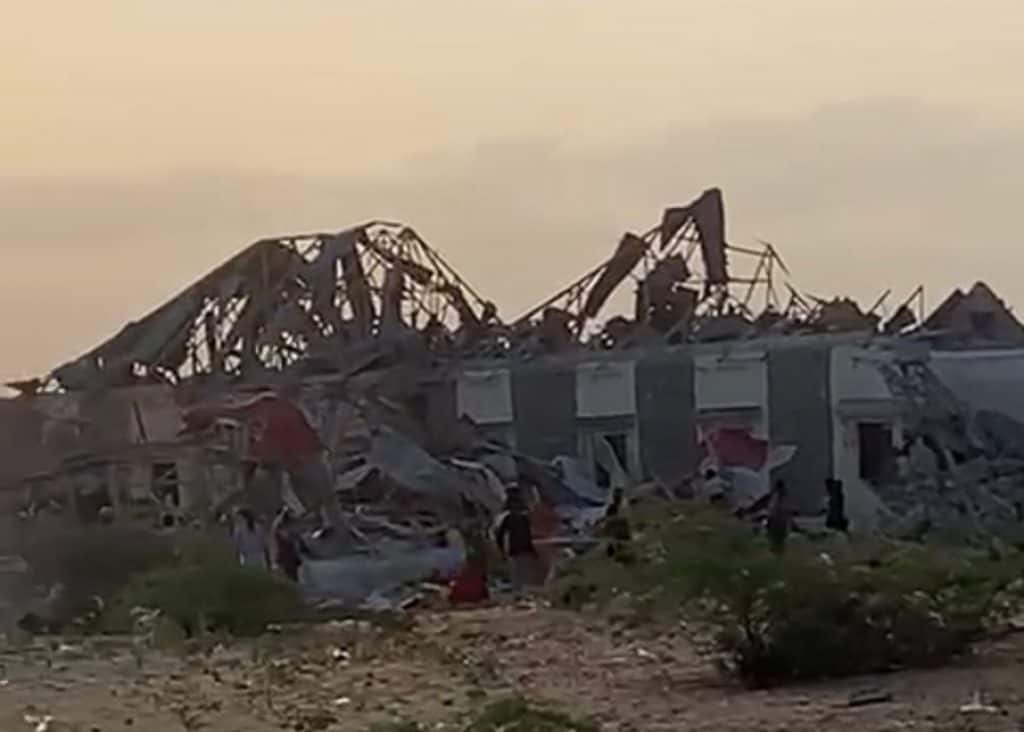
As the Somali capital continues to prepare for its presidential election next week, Shabaab, al Qaeda’s branch in East Africa, perpetrated a series of raids and suicide bombings across Mogadishu overnight.
The near simultaneous raids underscore the city’s lasting instability and Shabaab’s capabilities to continue to strike at government installations inside Mogadishu.
The total number of fatalities are currently unclear, though Somalia’s National News Agency stated that at least 5 people, including 2 children, were killed in the attacks. Another reported 16 people were wounded.
For its part, Shabaab said it was responsible for raids on police stations and military outposts in five different areas of Mogadishu and its immediate suburbs: Kahda, Yaqshid district’s Darasalam neighborhood, Hodan, Daynile, and the suburb of Ceelasha Biyaha.
In a statement released through its Shahada News Agency, Shabaab stated the raids began with a suicide bombing on the Kahda police station before gunmen entered the fray. Shortly thereafter, gunmen raided a military camp in the same district, reportedly engaging in combat with Somali troops.
Around the same time, another suicide assault team targeted yet another police station in Yaqshid’s Darasalam. Government officials, including their personal residencies, were also targeted. In all three areas, the al Qaeda branch stated its forces briefly took control of each government installation.
As those three assault teams were launching their attacks, Shabaab said it further raided police stations and military barracks in Hodan, Daynile, and Ceelasha Biyaha in order to prevent the Somali government from sending significant reinforcements to Kahda and Yaqshid.
Shabaab’s statement makes clear the raids were an attempt to directly disrupt Somalia’s ongoing parliamentary elections and upcoming presidential election. “This campaign comes at a time when international efforts at elections have stumbled,” Shabaab’s statement makes clear.
It further adds, that the attacks “confirm the inability of the government, subsidized by the West and the African Union, to provide security to the capital.”
Shabaab’s suicide bombing efforts
Last night’s dual suicide bombings in Mogadishu represent just the latest in Shabaab’s overall suicide bombing efforts. Since the beginning of the year, the group has launched at least 5 other suicide bombings inside Mogadishu.
This includes a bombing last week that targeted delegates in Somalia’s current parliamentary elections.
Previous suicide bombings in Mogadishu this year also include: a blast on Somali troops at a tea shop on Jan. 18; a bombing targeting a government spokesperson on Jan. 16; a suicide car bombing on a government security contractor convoy on Jan. 12; and another suicide car bomb on a government checkpoint in Hawlewadag District on Jan. 1.
These blasts follow an additional 55 suicide bombings perpetrated by Shabaab over the last two years, according to data compiled by FDD’s Long War Journal. The group utilized the tactic at least 30 times in 2020 and another 25 times in 2021.
At least 30 of these bombings took place inside Mogadishu, representing the most targeted area for Shabaab’s suicide bombing campaigns.
Most other areas in which Shabaab operates, however, have also been targeted. For instance, this includes: Lower Shabelle (8); Mudug (8); Jubaland (4); Bay (2); Gedo (1); Middle Shabelle (1); and Puntland (1).
The vast majority of targets have been government, military, or police forces and/or installations. Civilians have also been routinely targeted by these operations, though the group justifies these massacres by alleging its true targets were affiliated with the Somali government.
Shabaab continues to be one of al Qaeda’s most effective branches. It maintains significant control over much of southern Somalia and significant areas of northeastern Kenya, and is able to launch raids against heavily fortified bases in both Somalia and Kenya.
Though its fortunes have ebbed and flowed over the past decade, it has weathered numerous offensives from an array of local, regional, and international actors, including the United States.
And as shown today, it retains the ability to strike across large swaths of the Somali capital, even as the international community has increased focus on Mogadishu as it gears up for its long-delayed presidential election.







